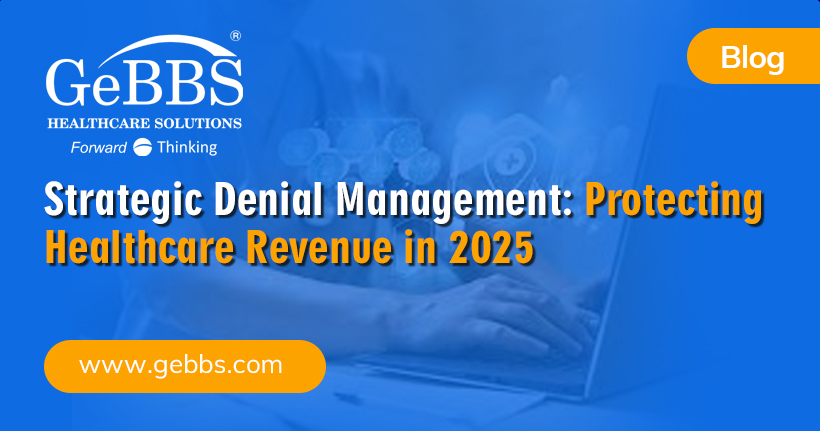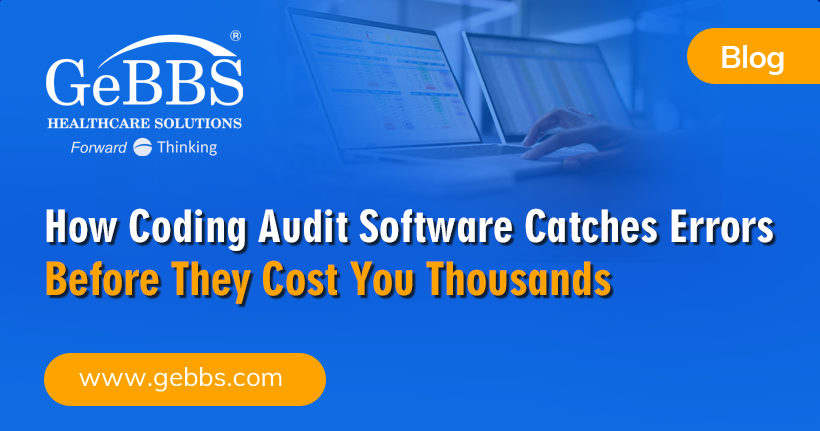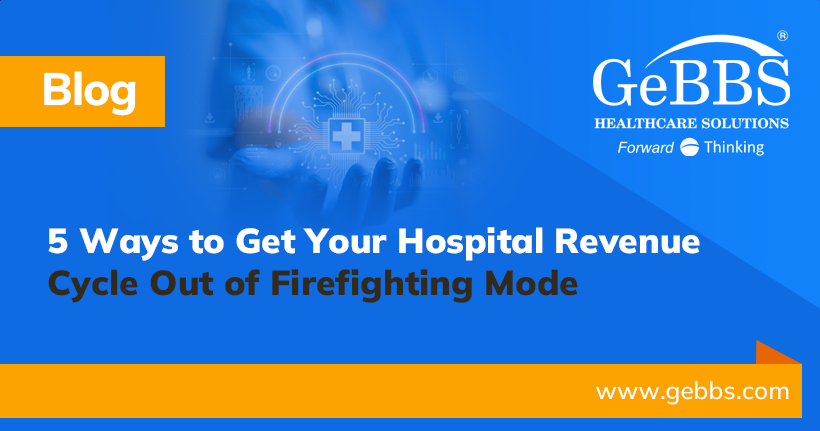Data has become an invaluable asset in the constantly evolving healthcare landscape — it fuels patient care, business-critical decisions, and revenue generation. However, healthcare organizations face increasing security risks with the growing reliance on data. Protecting sensitive data like patient’s Personal Identifiable Information (PII), Protect Health Information (PHI)and financial data including Payment Cards (PCI) information is paramount.
Robust data security environment and controls are critical for healthcare institutions’ revenue cycle management (RCM) teams. In today’s digital age, increasingly sophisticated cybercriminals find innovative ways to access and exploit sensitive information, leaving healthcare organizations vulnerable to financial loss and reputational risk. Consequently, securing the data that RCM teams rely on to collect payment from payers has become a top priority for healthcare organizations.
Knowing how best to protect your organization’s highly confidential patient records in the face of rising threats can be daunting; however, with the proper resources and knowledge, you can rest assured that every precaution has been taken to protect patient information.
Data Security Risks and Challenges in RCM
While the benefits of employing a healthcare coding company for RCM are undeniable, many security risks must be considered and mitigated. The growing reliance on digital healthcare records and other forms of data has made it easier to collect, analyze, and share large amounts of information. While this technology has revolutionized the healthcare industry by providing better patient care, reduced costs, and more efficient operations, it has also created new security risks for RCM teams.
Revenue cycle management teams rely on sensitive patient data to make claims, provide care and support to patients, and track financial information. When this data is not properly secured, it can lead to significant risk for healthcare organizations.
PHI Breaches
In 2022, it was reported that 194 data breaches of 500 or more records occurred daily, affecting many patients. As per HHS website, up to July 2023, over 400 healthcare companies have reported protected health information (PHI) breach, of which around 300 due to Cyber attacks.
Data security breaches can result from cyberattacks, insider threats, or human error.
The loss, theft, or exposure of patient protected health information (PHI) can have severe and costly consequences for patients and healthcare providers. Leaked PHI/ PII/ PCI data can lead to medical identity theft financial frauds and privacy concerns for the patients. Medical identity theft has increased more than sixfold from 2017-2021 to nearly 43,000 FTC-reported cases. [NHP1]
Cyber attacks like hacking and ransomware can bring RCM systems & operations to a standstill and make leaked patient data vulnerable until ransom is paid. Such attacks can disrupt operations, cause great expense to the healthcare organization, put sensitive data at risk of theft or loss, and damage an organization’s reputation.
Compliance to Regulatory requirements
To protect patient information, healthcare organizations must adhere to stringent regulations such as those of the Health Insurance Portability and Accountability Act (HIPAA) & The Health Information Technology for Economic and Clinical Health (HITECH) Act. While non-compliance can lead to hefty fines, maintaining compliance adds to cost pressure as it requires investment in people, process & technology and continuous training & monitoring.
Healthcare organizations have to maintain a fine balance between compliance requirements and cost/automation/ e-PHI access to enhance the pace, security & quality of services.
The Patient’s Role in Protecting Healthcare Data
Patients also play a crucial role in protecting their healthcare data. They should always be wary of suspicious emails, websites, or phone calls that may try to gain personal information. The FTC provides some tips for patients to protect their data from identity theft, including:
- Be vigilant about which organizations they share personal information with and what they do with it.
- Verify, if the organizations accessing their information are Compliant to HHS effective compliance program requirements, implement HIPAA mandates (privacy rule, security rule and encryption) and are certified on any of the data security standards like ISO 27001, HITRUST, NIST, PCI DSS etc.
- Protect any medical records, insurance documents, or any other medical information in a safe place.
- Review their credit report periodically to ensure no unauthorized accounts have been opened in their name.
- Use complex passwords and change them regularly.
- Keep passwords and PINs secure by not sharing them or writing them down where someone else might find them.
- Guard against phishing emails by being wary of any communication that asks for personal information or might direct them to a website asking for their login or to enter sensitive information.
Selecting reliable partners for Compliance
Healthcare organizations can better manage security & compliance by partnering with reputable & experienced offshore medical billing company, such as GeBBS Healthcare Solutions, to handle RCM processes with expertise in handling of sensitive medical data. Through a culture promoting safety, compliance, and governance, GeBBS maintains accountability and reliability when working with patient information. Along with implementing internal Compliance program, the essential external assurance that GeBBS integrates into its data management systems are the certifications: GeBBS is certified by reputed agencies on ISO 27001, ISO 9001, NIST CSF, AICPA SOC 2 reporting and HITRUST CSF. The key certifications that provide great assurance to our clients and regulators are:
AICPA SOC 2
SOC 2 reports provide independent assurance by an external agency on how data security is maintained by certified organizations that process patient data. The report analyzes the controls on data access concerning security, availability, processing integrity, confidentiality, and privacy. These reports provide significant oversight of the organization, individual employee accountability, regulatory oversight, and risk mitigation planning. The report also describes how data is accessed, stored, and transmitted and includes information about security monitoring, access control policies and procedures, encryption methods, and technologies used for patient data protection.
HITRUST CSF
Health Information Trust Alliance (HITRUST) Common Security Framework (CSF) is a comprehensive cybersecurity framework designed to address the specific security needs of healthcare organizations. It consolidates various regulatory and industry-specific standards into a single, certifiable framework.
HITRUST CSF Certification offers several benefits to healthcare organizations, including:
- Comprehensive Security: The certification covers a wide range of security controls, ensuring an all-inclusive approach to data protection.
- Third-Party Validation: It provides independent validation of an organization’s commitment to security, instilling trust in patients and partners.
- Streamlined Compliance: HITRUST CSF Certification aligns with other regulatory requirements, simplifying the compliance process.
GeBBS’ HITRUST CSF Certification highlights its dedication to maintaining the highest security standards in RCM medical coding. By obtaining HITRUST CSF Certification, GeBBS ensures:
- Data Protection: Patient data and financial information is safeguarded against threats.
- Compliance: The organization remains compliant with industry and regulatory requirements, reducing legal risks.
- Reputation: GeBBS enhances its reputation as a trusted partner in RCM by demonstrating its commitment to data security.
A Partner You Can Trust for Secure RCM Technologies
Meeting the growing security risks and vulnerabilities inherent in RCM is a challenge many healthcare organizations face. If security measures are not given adequate attention and followed by those with access, the data breach impact can be significant. As one of the Top 10 Revenue Cycle Companies, GeBBS Healthcare Solutions has implemented robust security measures based on comprehensive risk analysis. GeBBS has demonstrated a dedication to quality management programs that enjoy a high level of trust among their patients, physicians, employees, and the patients they serve. The commitment to Quality is reflected by its ISO 9001 (Quality Management System) certified delivery centers.
Contact us today at gebbs.com to see how GeBBS can help you reach your Revenue Cycle Management goals.






